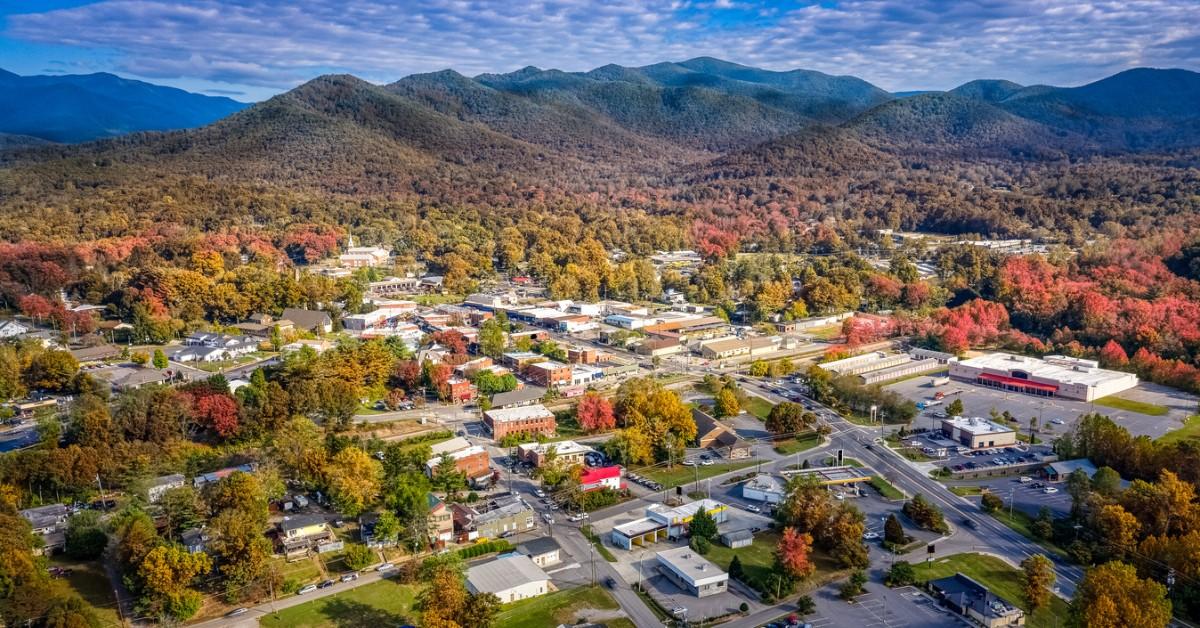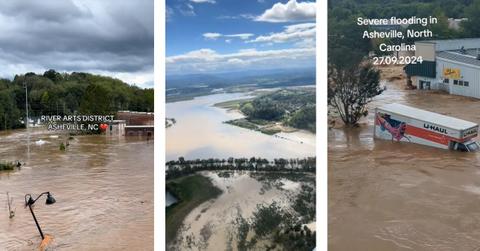How Climate Change Fueled the Tragic Flooding In Asheville, N.C.
Hurricane Helene's impact will likely be felt in Asheville and surrounding areas for years to come.
Published Sept. 30 2024, 12:51 p.m. ET
On Sept. 26, 2024, Hurricane Helene made landfall on Florida's west coast as a Category 4 hurricane. But Helene's destruction wasn't limited to the coastal areas that are typically prone to the extensive damage that these hurricanes leave in their wake. Instead, the hurricane cut a path up the U.S., causing record breaking flooding in areas like Tennessee and North Carolina, and devastating mountain towns like Asheville, N.C.
The catastrophic damage and loss of life — as of Sept. 30, 2024 Helene's death toll had reached 90, with 11 of those deaths having taken place in North Carolina alone — has left many wondering how such a thing could happen, especially in places like Asheville, an area that was almost completely under water when the clouds cleared.
So how did the flooding in Asheville get so bad? Learn more about what experts say caused the unprecedented devastation below.

Prior to Hurricane Helene, Asheville was a vibrant mountain town.
How much rain did Asheville get?
According to the Asheville Citizen Times, a record breaking 17.31 inches of rain fell over the three days that the remnants of Hurricane Helene battered the mountain town of Asheville. To put that in perspective, Asheville's previous wettest September on record occurred in 2004, when residents saw 13.71 inches of rain over a 30-day period.
In addition to breaking records for monthly rainfall totals, each day of the storm broke their own individual records as well. For example, the previous rainfall record for Sept. 26 was 1.71 inches, but the 2024 total blew that out of the water when 5.78 inches of rain fell on that same date.
Why did Asheville flood so bad? The climate crisis is to blame.
The experts all seem to agree on the reason why the flooding in Asheville was so catastrophic, and they say it had to do with the climate crisis and continued warming of the Earth's climate, which seems to be happening at a much faster pace than before.
And as explained by Scientific American, as temperatures continue to get hotter, they are making hurricanes stronger, leading to more destructive hurricanes, and hurricanes in more places. The news outlet also noted that Asheville was once referred to as a "climate haven" — but now, it's the victim of unprecedented flooding.
Another major reason why Asheville was hit so hard is its shape. The mountain town is located in a valley, which essentially acted a bowl during the hurricane, and held more water than other locations.
According to USA Today, the U.S. experienced an average of eight $1 billion disasters a year between 1980 and 2018. But, during the course of 2019 to 2024, that numbers jumped to 18 a year.
As of Sept. 30, USA Today predicts that Helene will cost the insurance industry between 15 and 100 billion dollars when all is said and done.
Unfortunately for those companies, and more importantly the human beings behind those numbers, experts believe that we'll see more catastrophic storms like Helene in the future unless we do something about our reliance on the fossil fuels that continue to exacerbate the growing climate crisis.
There are a few different ways to send help to Asheville residents.
If you're looking for a way to help those in Asheville who were hit hardest by the flooding, the Asheville Citizen Times says you can do so a few different ways. First, you can make financial contributions to legitimate charities on the ground locally, like the American Red Cross or the Salvation Army. There are also a number of fundraisers on GoFundMe.
Secondly, you can help the animal residents of Asheville who also need help by contributing to the Humane Society Disaster Relief fund.
And lastly, you can do the most help by staying where you are. The Asheville Citizen Times notes that unless you are already working with an organization that has been invited to the region to help, you should stay put to avoid putting an added strain on the already limited resources available to the first responders working in and around Asheville.
